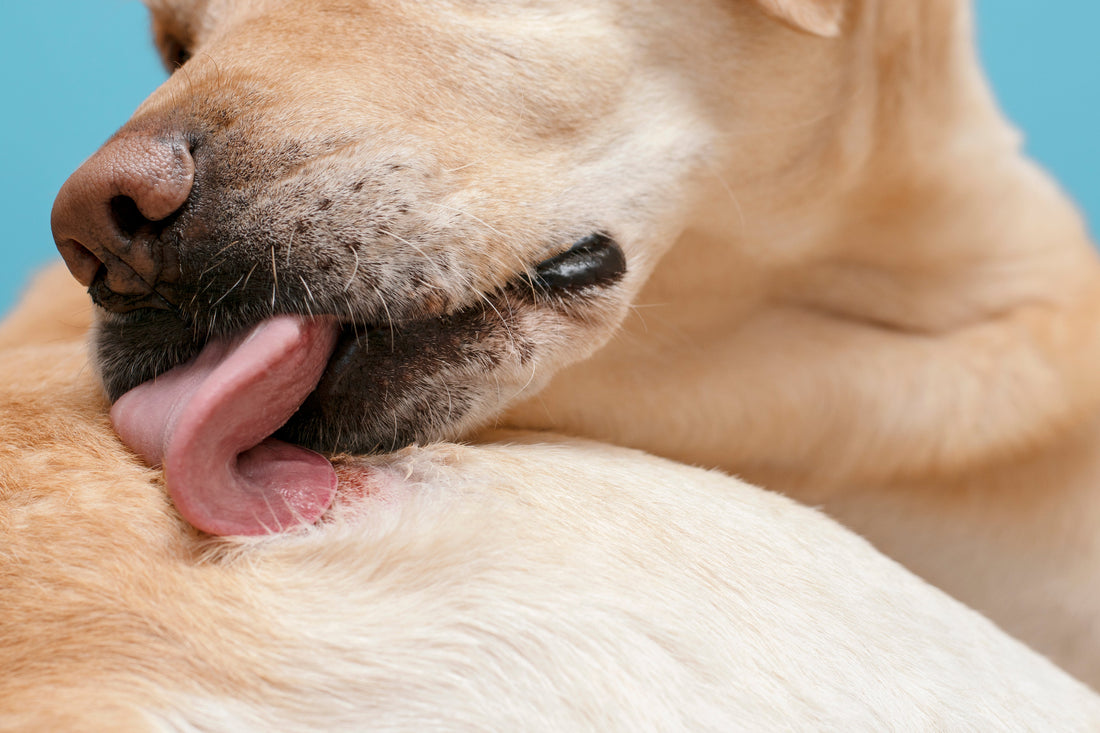Keeping your pet's skin in good condition is fundamental to their overall health. Sometimes, these itchy spots can be caused by sneaky little things called infections. These can make your pet itchy, red, and uncomfortable. No fun!
The good news is there are ways to spot them, treat them, and even stop them from happening in the first place. We want to help your pet feel happy and playful all the time, so we have tons of resources to help you keep their skin healthy!
What Are Bacterial and Fungal Skin Infections?
Bacterial and fungal skin infections are caused by microorganisms that invade the skin, leading to irritation and inflammation. These infections can result from various factors, including environmental conditions, underlying health issues, or weakened immune systems.
Common Symptoms of Skin Infections
Recognising the symptoms of bacterial and fungal skin infections is vital for early treatment. Common signs include:
- Red, Inflamed Skin: Affected areas may become red, swollen, and tender.
- Itching and Scratching: Pets may scratch or bite at the infected areas excessively.
- Hair Loss: Infections can lead to patches of hair loss.
- Skin Lesions and Sores: Open sores, scabs, and pustules may develop.
- Odour: Infected areas may emit a foul odour due to bacterial growth.
Diagnosing Skin Infections
If you suspect your pet has a skin infection, consulting your veterinarian is essential. The diagnosis typically involves:
- Physical Examination: The vet will inspect your pet's skin for signs of infection.
- Skin Scraping: A sample of the affected skin may be taken and examined under a microscope to identify the type of infection.
- Culture Tests: Skin cultures can help determine the specific bacteria or fungi causing the infection.
- Blood Tests: These may be conducted to check for underlying health conditions contributing to the infection.
Treatment Options for Skin Infections
Once a diagnosis is made, appropriate treatment can begin. Common treatments for bacterial and fungal skin infections include:
Topical Treatments
Topical medications, such as creams, ointments, and shampoos, are often used to treat skin infections. These treatments help reduce inflammation, eliminate bacteria or fungi, and soothe the skin.
Oral Medications
For more severe infections, oral antibiotics or antifungal medications may be prescribed. These medications work from within the body to combat the infection and prevent it from spreading.
Bathing and Grooming
Regular bathing with medicated shampoos can help manage skin infections. Ensure you follow your vet’s recommendations for bathing frequency and product use.
Addressing Underlying Conditions
Treating any underlying health issues that may contribute to skin infections is crucial. This may include managing allergies, improving nutrition, or addressing immune system deficiencies.
Preventing Bacterial and Fungal Skin Infections
The best way to avoid those pesky skin infections is to be super prepared. Here are some pawsome tips to keep your furry friend comfy and healthy:
Regular Grooming
Regular grooming helps keep your pet's skin and coat clean and debris-free. Brush your pet’s fur regularly to remove loose hair and prevent matting, which can create an environment for infections to develop.
Healthy Diet
A balanced diet is essential for your pet’s overall health, including their skin. Ensure your pet receives the necessary nutrients to support a healthy immune system and skin barrier.
Clean Living Environment
Maintaining a clean living environment can help prevent skin infections. Regularly wash your pet's bedding, toys, and grooming tools to eliminate bacteria and fungi.
Monitor for Symptoms
Keep an eye on your pet for any signs of skin infections. Early detection and treatment can prevent the infection from worsening and spreading.
Regular Vet Check-Ups
Routine veterinary check-ups are crucial for early detection and prevention of skin infections. Your vet can provide guidance on maintaining your pet’s skin health and recommend preventive measures.
Managing Recurring Infections
For pets prone to recurring skin infections, managing the condition involves ongoing care and vigilance. Work closely with your veterinarian to develop a comprehensive plan that includes regular monitoring, preventive treatments, and lifestyle adjustments.
Identifying Triggers
Identify and avoid potential triggers that may cause skin infections. This could include allergens, environmental factors, or specific grooming products.
Strengthening the Immune System
Supporting your pet’s immune system can help reduce the frequency of infections. Provide a balanced diet, regular exercise, and consider supplements that promote immune health.
Consistent Treatment
Follow your vet’s treatment plan consistently, even if symptoms improve. Incomplete treatment can lead to recurrence or resistance to medications.
Keeping Your Pet's Skin Healthy
Maintaining your pet's skin health requires a proactive approach. By understanding the causes and symptoms of bacterial and fungal skin infections, you can take steps to prevent them and ensure prompt treatment if they occur. Regular grooming, a healthy diet, and a clean environment are essential to your pet's skincare routine.
Saying Goodbye to Infections
Just like us, healthy skin makes our furry friends feel their best. By monitoring their well-being, we can help them avoid itchy surprises.
At Healthy Pet Co., we're all about happy and healthy pets! We have many awesome resources and vet-approved products to keep your pet's skin feeling great. Explore our range of skincare goodies and helpful tips - we're here to support you on your journey to a happy, healthy pet!
Let's make sure your furry friend lives life to the fullest together!




